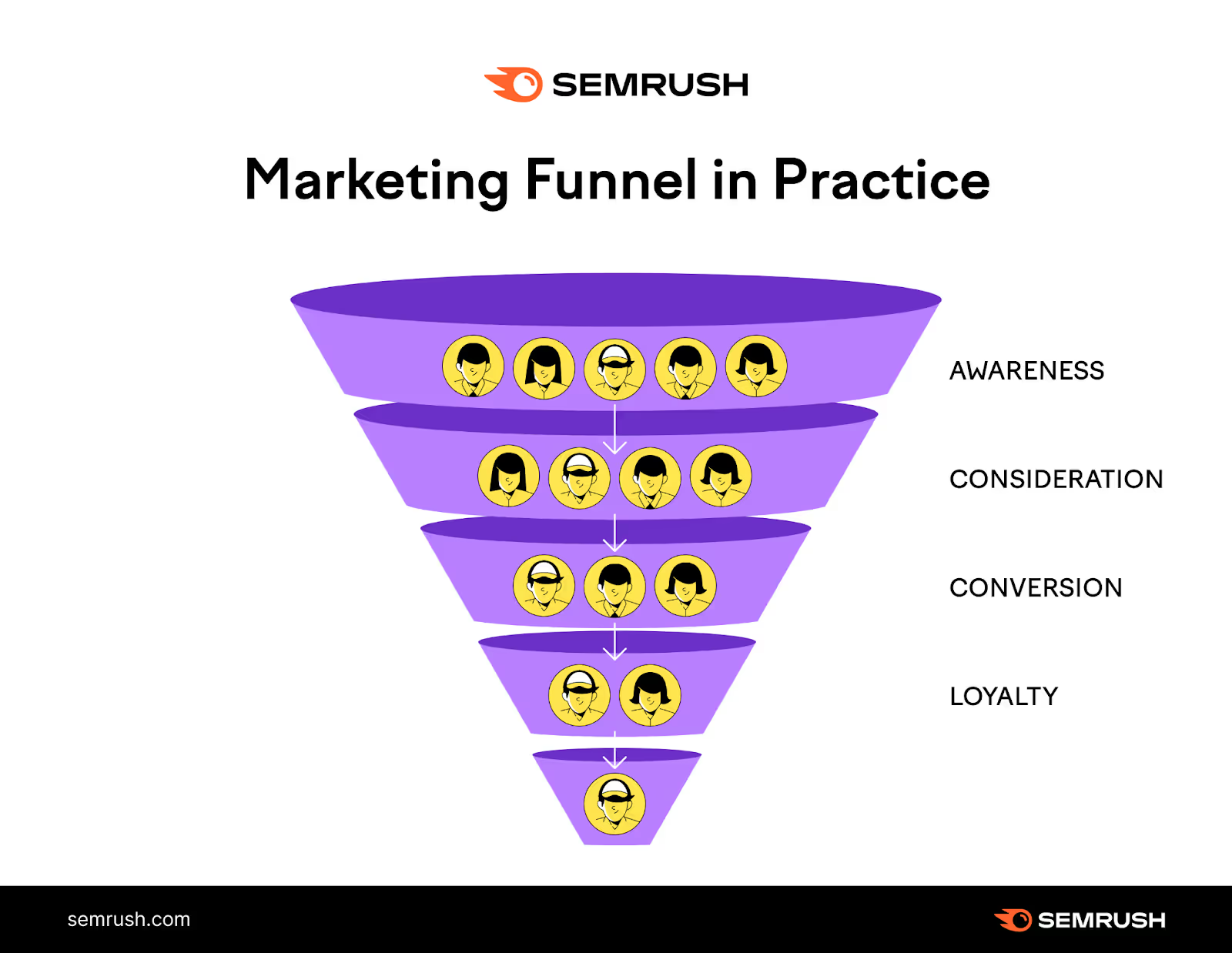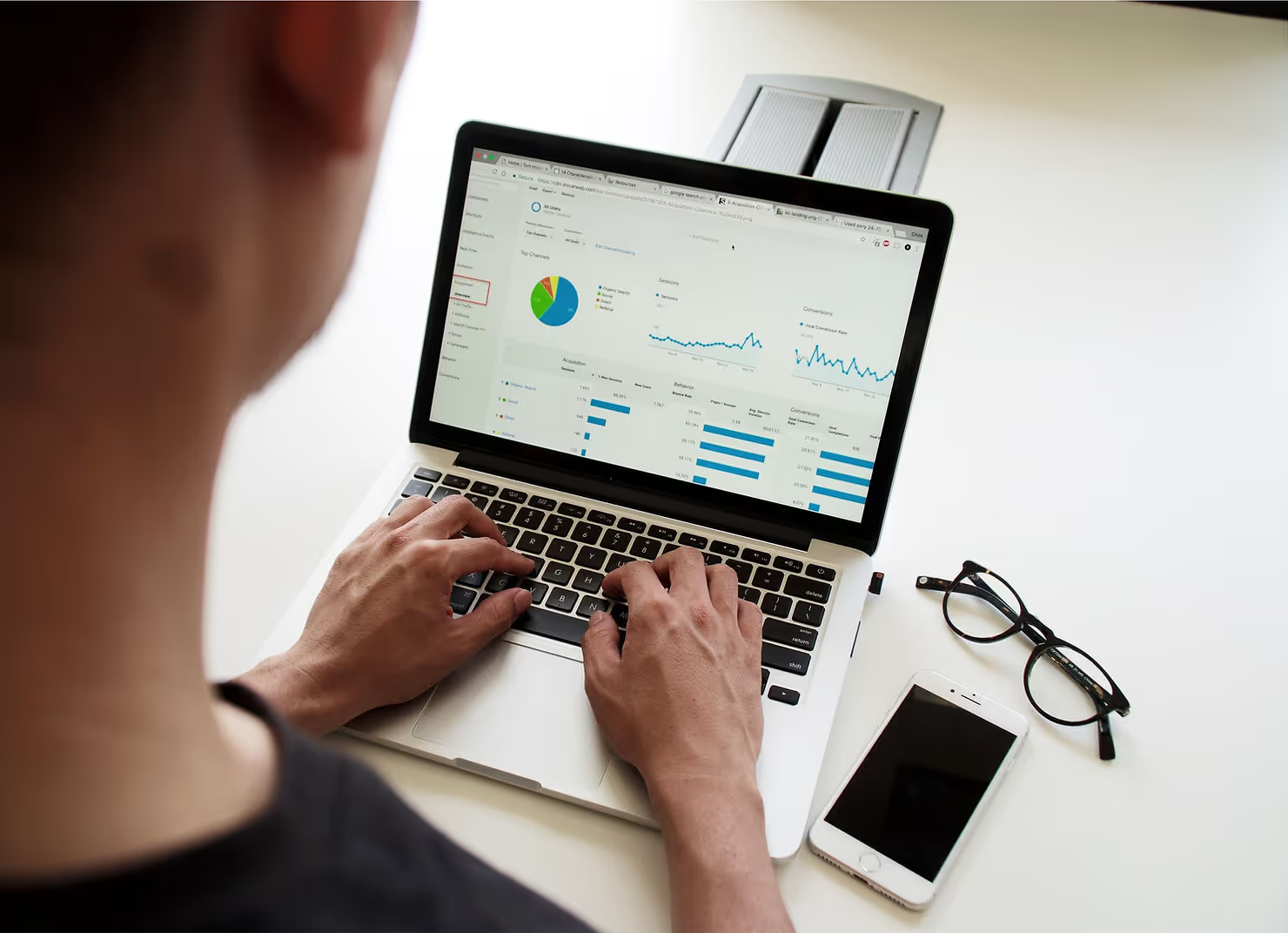January 15, 2025

Explore the process of measuring and optimizing your content marketing funnel, helping you achieve maximum return on investment (ROI).

Written by
Staff Writer
WD Team
In the ever-evolving world of content marketing, success is not just about producing great content; it's about creating a well-optimized content marketing funnel. This essential component of your digital marketing strategy guides your audience through a journey, from awareness to conversion. But how do you ensure your content marketing funnel is working at its best? In this comprehensive guide, we'll explore the art of measuring and optimizing your content marketing funnel, helping you achieve maximum return on investment (ROI).
Before we dive into the optimization process, let's make sure we're on the same page regarding what a content marketing funnel is. The content marketing funnel is a framework that divides the customer's journey into several stages, each with a specific purpose:

Via Semrush
Awareness: At the top of the funnel, your goal is to attract a broad audience. Your content should be informative, engaging, and designed to catch the attention of potential customers who might not even be aware of their problems yet.
Consideration: In this stage, you want to engage those who are actively looking for solutions to their problems. Your content should provide value and guide them toward potential solutions, which may include your product or service.
Conversion: The bottom of the funnel is where the magic happens. At this point, your content should be persuasive and geared toward converting leads into paying customers.
Retention and Loyalty: The funnel doesn't end at conversion. Successful brands continue to engage and delight customers through valuable content, fostering loyalty and turning customers into brand advocates.
To optimize your content marketing funnel, you need to know how it's performing. Measurement is the key to this understanding. Here's what you should be tracking at each stage:

Via Semrush
To accurately measure your content marketing funnel, you'll need the right tools. Google Analytics is an invaluable resource for tracking website traffic and user behavior. For email marketing, consider using platforms like Mailchimp, which provides insights into open rates, click-through rates, and subscriber growth. Additionally, marketing automation software like HubSpot or Marketo can help you track leads and conversions.

Once you've collected the necessary data, it's time to interpret the findings. Start by looking for patterns and trends. For example, you might notice that certain blog posts consistently lead to higher engagement, or that a specific email campaign has a higher conversion rate. Use these insights to optimize your content marketing efforts.
Data analysis can also reveal potential bottlenecks in your funnel. For instance, if there's a significant drop-off in leads between the consideration and conversion stages, it's a signal that something may be amiss. Identifying these weak points allows you to focus your optimization efforts where they're needed most.
Now that you have a clear understanding of how your content marketing funnel is performing, it's time to make improvements. Here are some strategies to optimize each stage of the funnel:
Optimizing your content marketing funnel can be a complex and time-consuming process. That's where marketing consultants like W.D. Strategies come in. With their expertise, they can help you analyze your funnel, identify areas for improvement, and implement strategies to enhance each stage of the customer journey. Whether you need help with SEO, content creation, email marketing, or conversion rate optimization, marketing consultants bring a wealth of knowledge to the table, helping you achieve the best possible results from your content marketing efforts.

In conclusion, an optimized content marketing funnel is the cornerstone of a successful digital marketing strategy. By measuring its performance, analyzing the data, and making informed improvements, you can significantly increase your ROI. If you're looking for expert guidance, don't hesitate to reach out to marketing consultants like W.D. Strategies, who specialize in turning content marketing funnels into efficient and highly effective conversion machines.